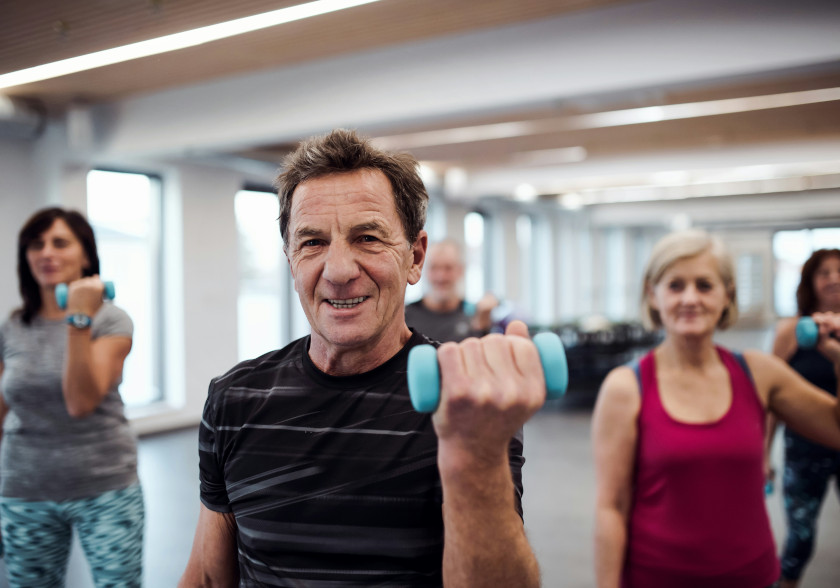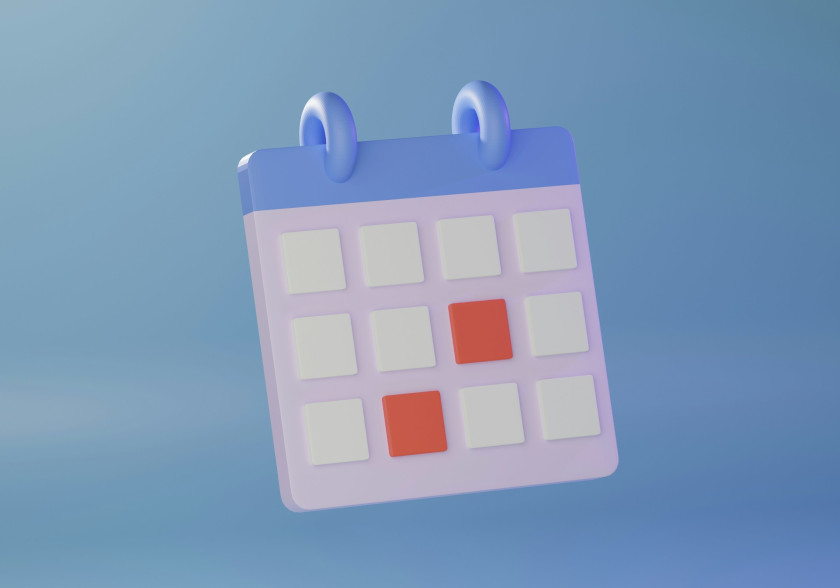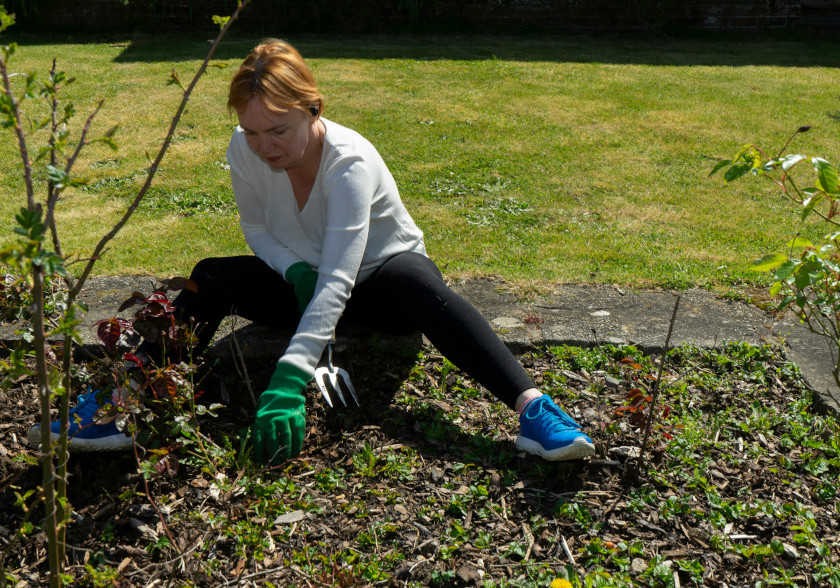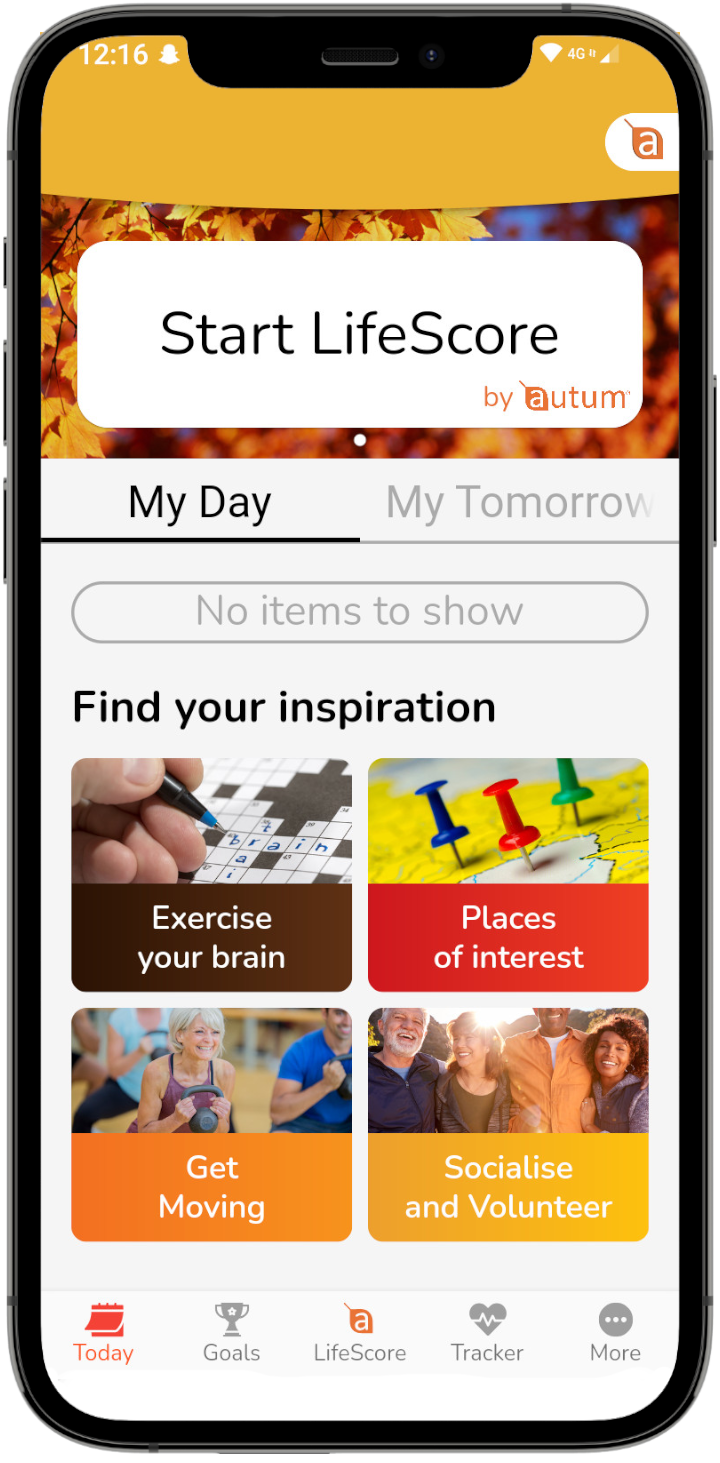Changing your lifestyle to improve your health and wellness is easier than you think, and by breaking down your commitment into small incremental steps, you remove many of the barriers to hitting your target. Goal-setting is an easy way to achieve your aims and improve your understanding of how small lifestyle adjustments can help shape your future health and wellness.
Setting goals, simply put, is plotting a course for your journey. It provides direction, motivation and a sense of purpose. Whether it’s being more physically active, improving your sleep quality or optimising your nutrition, having clear objectives is key to success.
Throughout our working lives many of us have used or experienced frameworks such as SMART for effective goal-setting. SMART stands for Specific, Measurable, Achievable, Relevant and Time-bound and far from being useful only in the business world, these principles can be easily integrated into a plan to help you get the most out of life:

Specific
When setting goals, be clear and specific about what you want to achieve. Ask yourself: What exactly do I want to accomplish? Why is it important? When you’ve answered these questions, you’ll have a roadmap that guides your actions and decisions.
Say, for example, your goal is to increase your daily step count to more than 8000 steps. You’ve outlined what you want to achieve: walking a specific number of steps each day. You understand why it’s important: to achieve better health as you age. There is a tonne of evidence that shows how walking more than 7800 steps per day can lower biological age by more than three years compared to someone who walks only 3500 steps per day.
8000 steps become your specific goal. To help you along, you can choose walking routes from suggestions in your autum app to keep you on track. You could also invite a friend or a family member who can join you in reaching your goal.
Measurable
By recording your daily step count, you can see tangible progress over time, such as increasing your average steps per day or consistently hitting your target. For example, if your current average is 5000 steps per day, you can set incremental goals to gradually increase your step count until you reach 8000 steps or more.
In the example above, you don’t even have to do it in one go. Your steps cover the whole day, so pace yourself and do what is comfortable for you. You can also track the impact of your actions by completing autum LifeScore. This tool calculates your biological age and suggests key changes you can make to your lifestyle to further improve your health and stay physically, mentally and socially active.

Achievable
While it’s essential to aim high, it’s equally important to set goals that are within reach. Be honest with yourself about what goals are realistic and attainable. Setting achievable goals boosts confidence and pushes you on to greater things.
Building on your original goal, you might try more vigorous exercise – again, this can positively affect your biological age. For example, doing one 45-minute session of moderate exercise per week such as Zumba, aerobics, swimming or cycling can lower your biological age by 0.36 LifeScore years.

Relevant
Your goal of walking more than 8000 steps per day is relevant to your overall health and wellbeing. We know that walking is a low-impact exercise that offers numerous health benefits, including improved cardiovascular health, increased endurance and enhanced mood. What’s more, walking can be a social activity – invite friends to share your goal of better health and incorporate it into your daily routine.
Additionally, setting a specific step count goal provides a tangible way to track your progress and stay motivated. By choosing a goal that resonates with your desire for better health and fitness, you maintain a strong sense of purpose and commitment to achieving your objective.

Time-bound
Why time matters. Setting a time-bound goal establishes a deadline for achieving your objective, creating a sense of urgency and accountability. For instance, if your goal is to increase your daily step count to more than 8000 steps, you could set a specific timeframe, such as “I will walk 4000 steps per day for the next week. I’ll increase by 1000 steps per week, each week thereafter.” This deadline provides a time-fixed goal and motivates you to take consistent action towards reaching your target.
We want autum members to get the most out of completing goals, so we’ve added an extra incentive to the app. The new monthly prize draw for members who complete their goals is completely free to enter – all you have to do is set your weekly goals using the “Goals” icon, then update us when you complete an activity or at the end of each day. Once you’ve achieved a goal, we’ll notify you and allow you to confirm your entry into the prize draw.
Plus, for every goal you accomplish, you’ll earn an additional entry, increasing your chances of winning! Best of luck – in April’s prize draw you could be the lucky recipient of a £100 Amazon gift card!

Six tips for effective goal-setting
Motivation is key to making sure you stick to your goals and it has to come from within. Like fad diets, it is easy to make gains in the short term but if the path to that gain is one of pain, you will not stick with it and within a few months you are back at square one.
To avoid procrastination and stay on track with your goals, visualise your target and make notes of what motivated you to start in the first place. These reminders can even be looked on as your rules and are helpful to prevent commitment fatigue.
- Start with the big picture: Begin by picturing your long-term goals and targets (They don’t have to be significant). What do you ultimately want to achieve? Break down these down into smaller, more manageable objectives that you can tackle step by step.
- Track it in the autum app: There’s power in committing. Add your goals in the autum app and even write your reasons down on your notice board or a piece of paper. This not only reinforces your reasons but also provides clarity and focus.
- Flexibility is key: Life is full of surprises, and goals are no exception. Be open to adapting and revising your goals as circumstances change. Flexibility allows you to pivot when necessary while staying true to your core objectives.
- Overcoming obstacles: Goal-setting isn’t always smooth sailing. It’s normal to encounter obstacles along the way, whether it’s procrastination, fear of failure, or lack of motivation. Celebrate the small victories along the way.
- Share and support: Don’t go it alone! Share your goals with friends, family members, or mentors who can provide encouragement and support.
Our research showed 7 in 10 of us think about how our actions today will impact our future health and half of older people in the UK would like to be more mentally or physically active to improve their health. In most cases, we know what we should do more of and what we should do less of, it’s not the knowledge that’s missing, but the motivation plus a satnav to show direction and progress.
We built autum LifeScore to help provide direction by illustrating how simple changes can positively affect your health and wellness. LifeScore is a short questionnaire that looks at your lifestyle risk factors and provides feedback on your biological age and future health and wellness prospects. As you meet your goals, you can remeasure the positive impact of your actions in LifeScore.
As you embark on your goal-setting journey, remember that the road to success is uneven and you’ll need to persevere. Keep pushing forward, stay focused on your objectives and you’ll soon reap the rewards.
To help us make Britain one million biological years younger take our autum Lifescore calculator to determine your biological age and use our autum App on Android or IOS to help improve your biological age today!

Writer and editor with 20 years experience in digital and print media. Tip-toeing into the next stage of life with grown-up kids and the opportunity to do something new.


